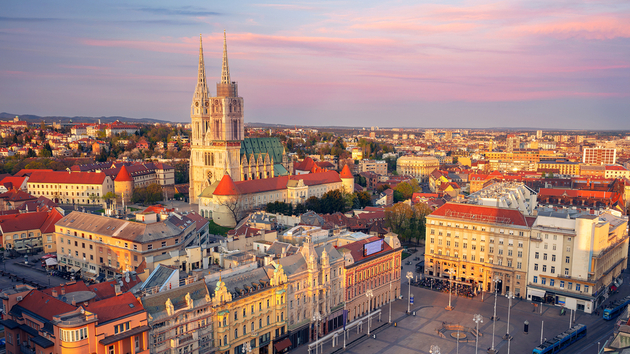WHO CAN ATTEND THE SUMMER SCHOOL?
The event is addressed to students of Law, Political Science, Sociology, Economics, or related disciplines who:
- have completed at least 60 ECTS (i.e. one full year of studies),
- have sufficient knowledge of English at B2 level minimum,
- are eager to expand their knowledge and develop critical perspectives on contemporary democratic challenges and the evolving role of law in addressing them
WHY IS IT WORTH IT?
- high-quality academic programme
- possibility of accumulating 4 ECTS
- topic of important global and European significance
- cultural attractions in the heart of Zagreb
FINANCING
The University of Lodz will award 3 scholarships to participate in the Zagreb summer school covering;
- travel costs: 1500 PLN
- subsistence: 400 PLN / day
- allowance: 75 PLN / day (student), 125 PLN / day (doctoral student)
- The University of Lodz will also cover the participation fee of 600 EUR.
APPLICATION FORM
In order to fill in the application form visit the website
REQUIRED DOCUMENTS
The following documents must be submitted:
- CV
- motivation letter
- proof of English at B2 minimum
- proof of enrolment at Uni Lodz
- transcript of records
DEADLINE FOR APPLICATIONS
The deadline is 31 May 2025.
More information (information brochure, programme of the event) can be found on the project website.
LEARNING OUTCOMES
Upon successful completion of the summer school, its participants will be able to:
KNOWLEDGE
- Demonstrate an understanding of the key concepts related to democracy, democratic backsliding and the legal frameworks that support or hinder democratic governance.
- Explain how law interacts with broader political, economic, cultural, and ideological forces within different societies.
- Identify and describe the roles of various institutions and actors – such as courts, civil society organizations, political parties, and international bodies – in the defense or erosion of democratic principles.
- Understand the specific challenges faced by marginalized and vulnerable groups (e.g., national minorities, women, displaced persons, LGBT individuals) in democratic and post-conflict contexts.
- Recognize the transnational and local dimensions of democratic crises, including how European and international courts address democratic decline.
SKILLS
- Analyse complex legal, political, and societal phenomena using interdisciplinary approaches from law, political science, sociology, philosophy, and economics.
- Critically evaluate contemporary developments related to democracy and law, drawing on empirical and theoretical sources.
- Apply analytical tools to assess democratic institutions and legal systems in various contexts, from the local to the global.
- Formulate evidence-based arguments and articulate informed opinions on legal and political issues affecting democracy.
- Engage in reflective discussions and debates on controversial and ethically sensitive topics, demonstrating an ability to integrate diverse viewpoints.
SOCIAL COMPETENCES
Having completed the summer school, participants will be able to:
- Demonstrate openness to intercultural, interdisciplinary, and international dialogue in addressing legal and democratic challenges.
- Cooperate effectively in group work, discussions, and site visits, respecting different academic, cultural, and social perspectives.
- Display responsibility and ethical awareness in discussing human rights, justice, and the societal impact of legal and political decisions.
- Show commitment to the principles of democracy, human rights, equality, and inclusion in academic and future professional environments.
- Reflect on their own values and positionality in relation to the global and local challenges to democratic governance.
The financing of the participation in the event comes from the We are UNIC! project. The project is financed by the European Union as part of the programme Support for European University Alliances, NAWA project number FERS.01.05-IP.08-0219/23, amount of project funding from EU funds: PLN 62,705,297.60.


